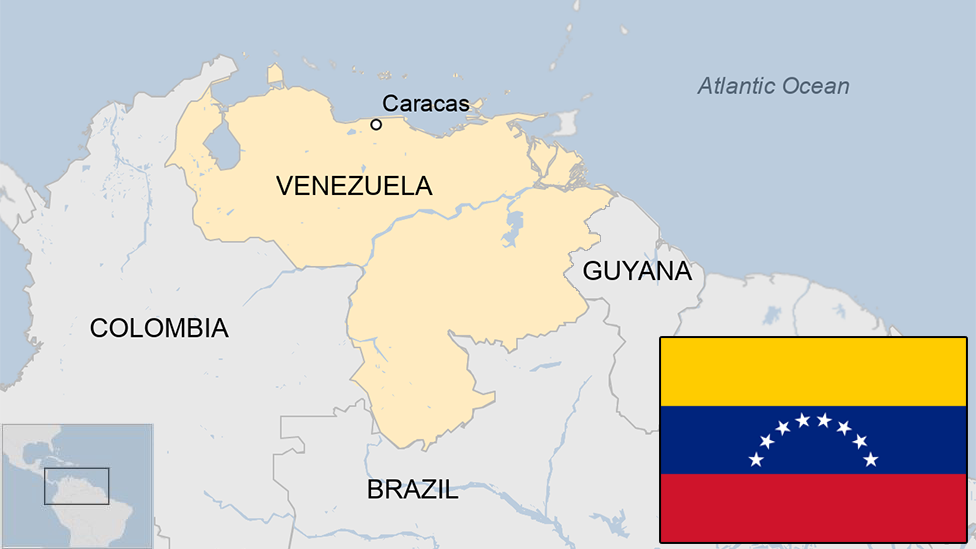Venezuelan campaign for Maduro recall passes first hurdle
- Published
Amateur footage shows people taking flour off a lorry in Puerto la Cruz
Venezuela's National Electoral Council (CNE) has announced its approval of the first step in an opposition campaign to recall President Nicolas Maduro.
It said the opposition had succeeded in gathering 1% of voter signatures in all 24 of Venezuela's states.
The move is the first part of the opposition's push for an early end to President Maduro's term in office.
In a further twist, the Supreme Court declared the parliament in contempt for swearing in three opposition delegates.
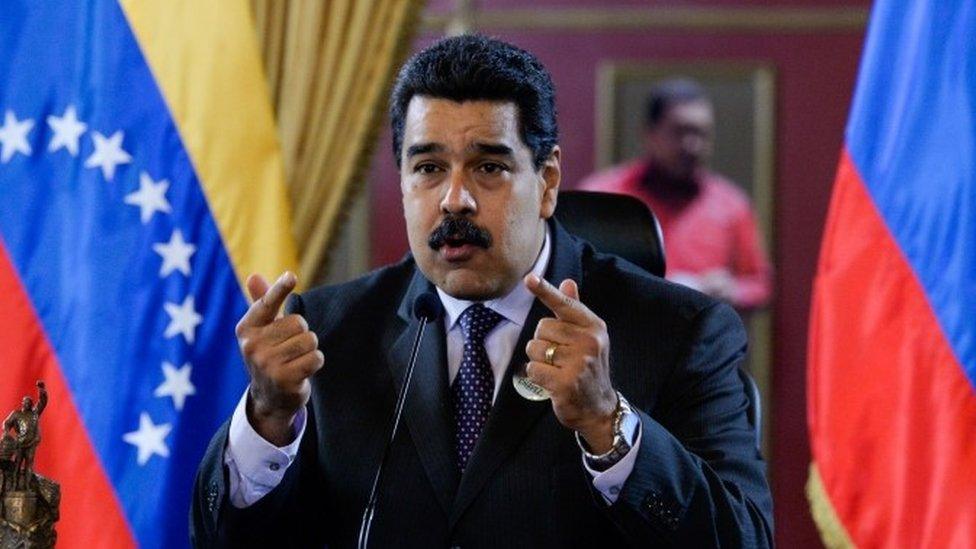
The move against President Maduro comes as the country goes through a grave political and economic crisis
Deep divisions
The three delegates were elected last year but the Supreme Court had barred them from taking up their seats over alleged irregularities in the 6 December poll.
The National Assembly, which is controlled by the opposition, swore them in last week arguing that in the months since they were barred, the investigation had stalled and they were innocent until proven guilty.
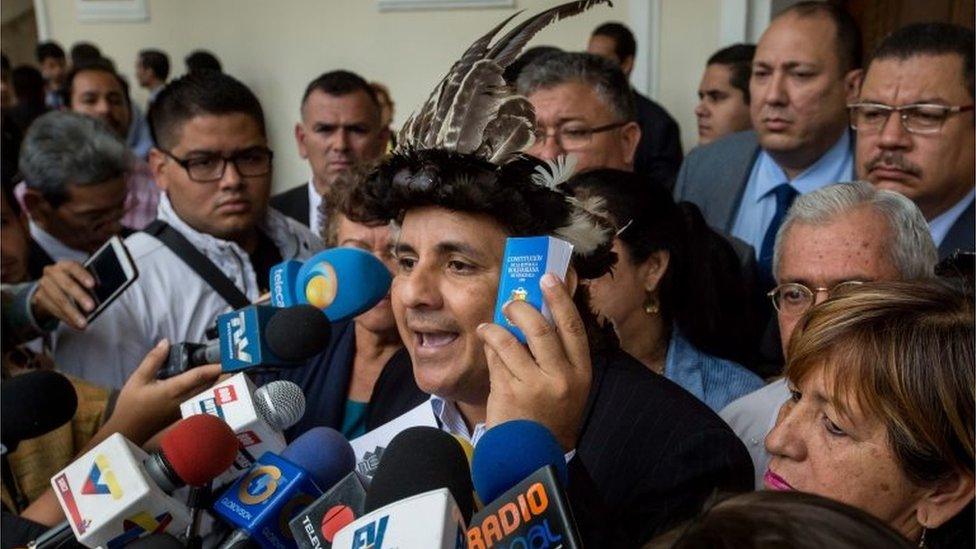
Julio Ygarza was one of the three delegates from Amazonas state sworn in last week
But on Monday the Supreme Court warned that all decisions taken by the assembly would be null and void until the three stood down.
The opposition says the court is stacked with government loyalists intent on preventing the opposition from exerting its power in the National Assembly.
Venezuela's political and economic crisis has deeply divided the country. Shortages of basic goods are widespread, as is looting.
The inflation rate is one of the highest in the world and there are long queues outside shops.
The National Electoral Council (CNE) said Mr Maduro's opponents had cleared the threshold of obtaining 200,000 valid signatures on a petition demanding that the president face a recall referendum.
The council did not set a date for the next stage of the lengthy recall process - when the opposition will need to collect four million signatures in just three days.
The opposition accuses Mr Maduro's administration of mismanaging the economy.
Mr Maduro was elected in April 2013. His term runs until 2019.

Next steps towards a referendum

Thousands of Venezuelans queued at CNE offices to have their signatures validated
20% of voters (almost four million) have to sign a second petition in order to trigger the referendum
For the referendum to be successful, an equal or greater number of voters than those who elected Mr Maduro will have to cast their vote in favour of the recall - he won the 2013 election with 7,587,579 votes

Determined
Correspondents say CNE head Tibisay Lucena provided the president with a major fillip by stating that claims of widespread fraud in the opposition petition should be investigated.
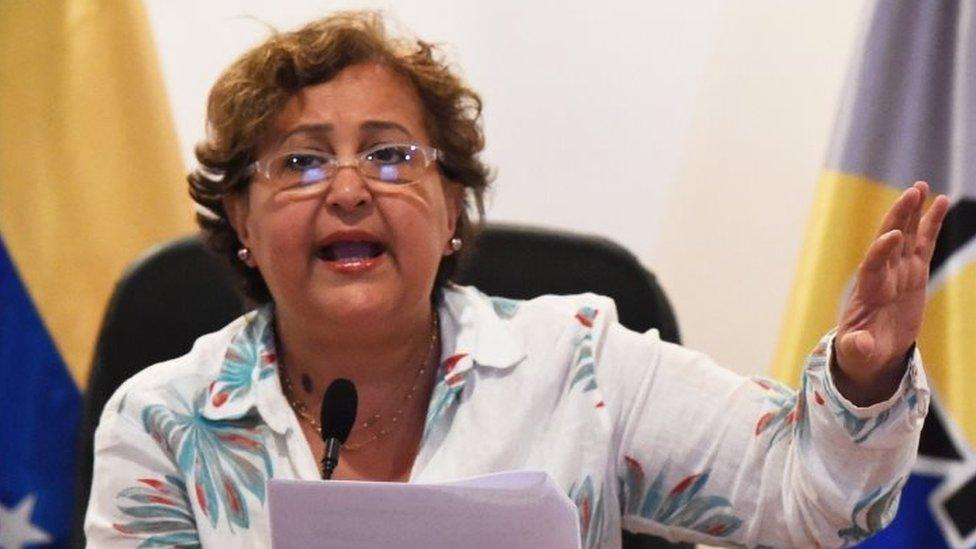
National electoral council Tibisay Lucena has not specified when the next stage of the referendum will be held
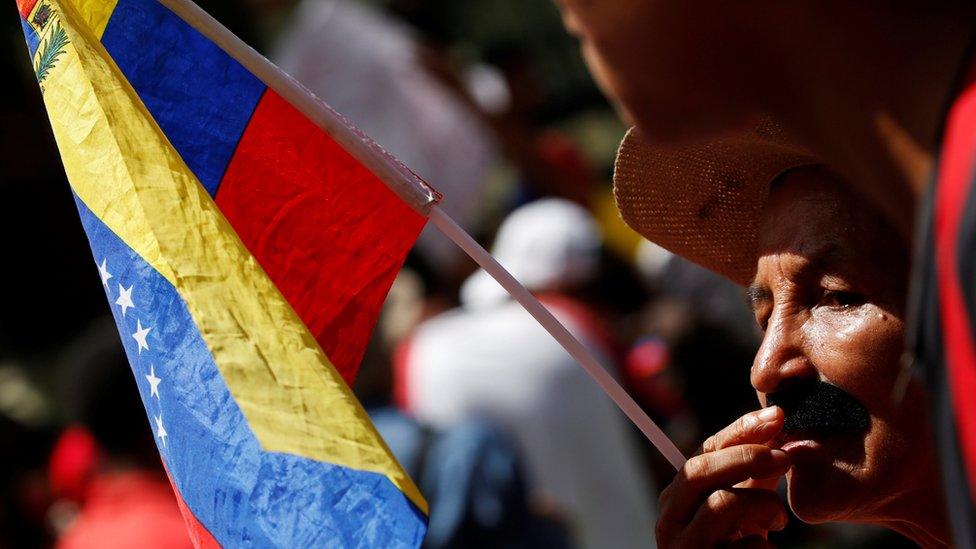
Maduro supporters rallied in Caracas at the weekend - this women sported a fake moustache
Ms Lucena said the authorities had detected more than 1,000 apparently falsified signatures.
"The electoral authority will ask the state prosecutor's office to investigate," she said.
However, she made clear that 98% out of about 408,000 signatures gathered by the opposition Democratic Unity Roundtable (MUD) coalition - twice the minimum required in the initial phase - had been validated.
The government made clear that it was determined not to allow a referendum this year.
It has initiated nearly 9,000 lawsuits around the country in an effort to try to halt the referendum push.
Correspondents say timing is vital because if President Maduro loses a referendum in 2016 - as polls suggest he will - a new presidential vote will be triggered, giving the opposition a chance to end 17 years of socialist rule.
But if the president loses a referendum next year, he would be replaced by his vice-president, effectively ensuring the socialist party remain in power until the next presidential election scheduled for 2018.
Opposition leaders want Ms Lucena immediately to announce a date for the collection of 20% of signatures in order to trigger a referendum as soon as possible.
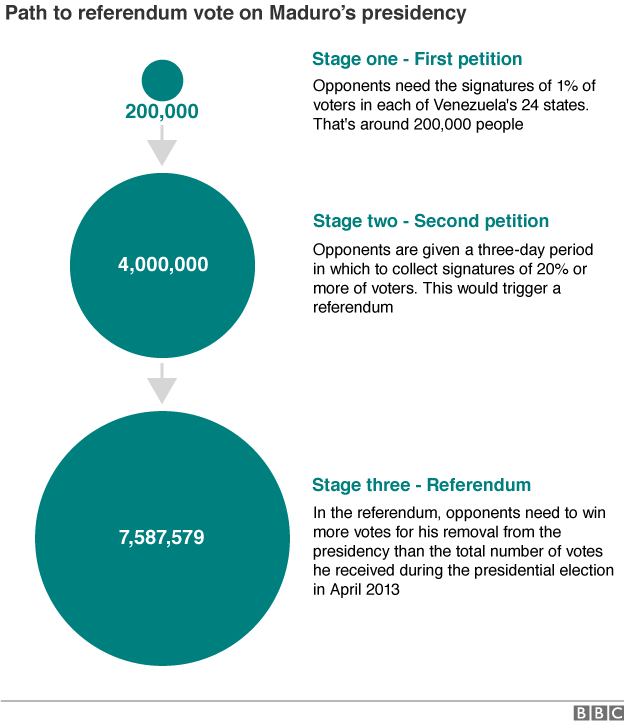
- Published25 June 2016
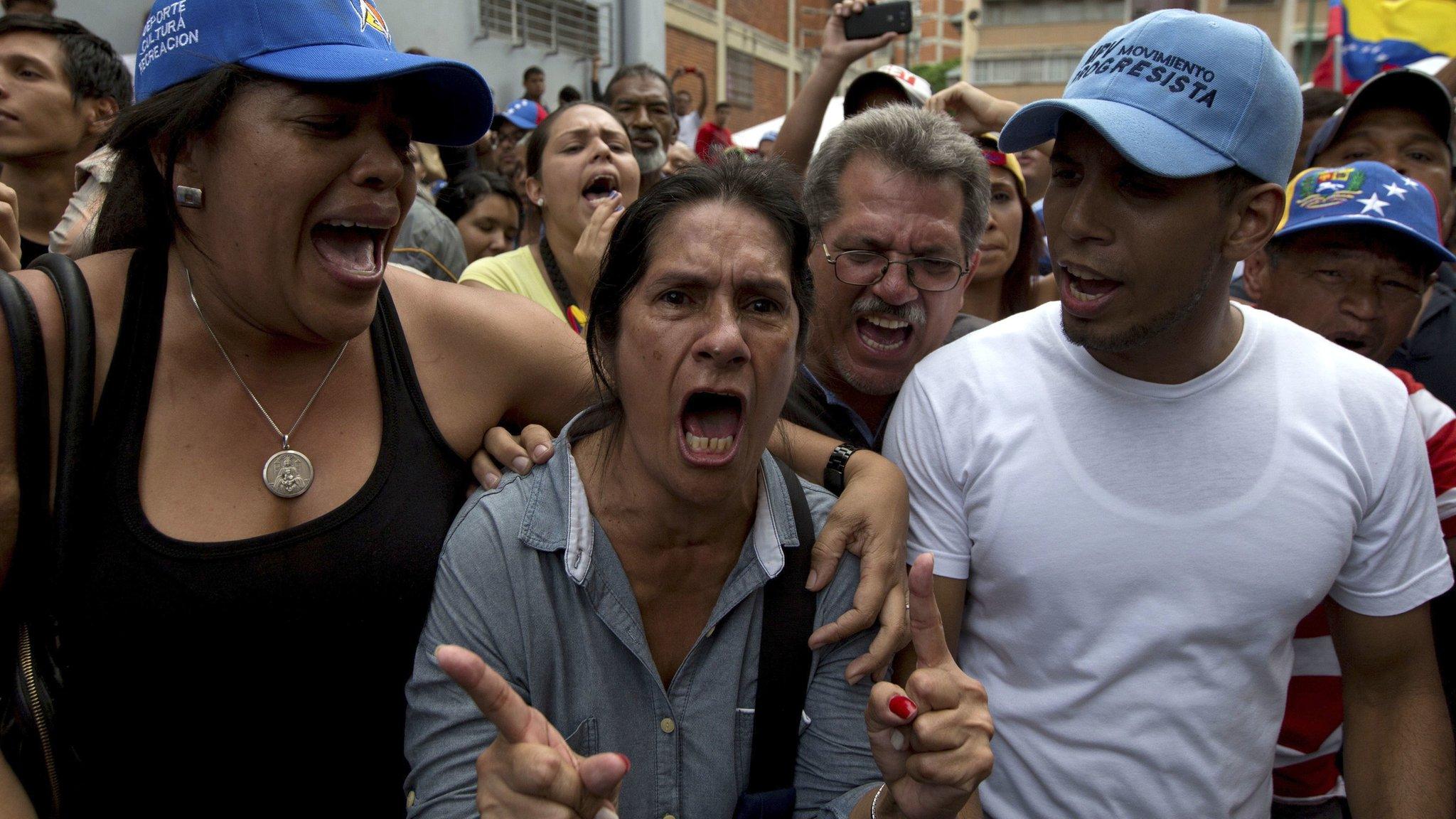
- Published21 June 2016
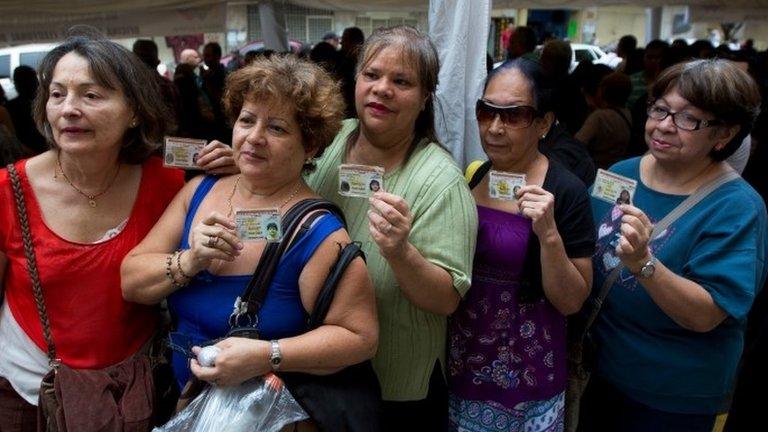
- Published12 June 2016
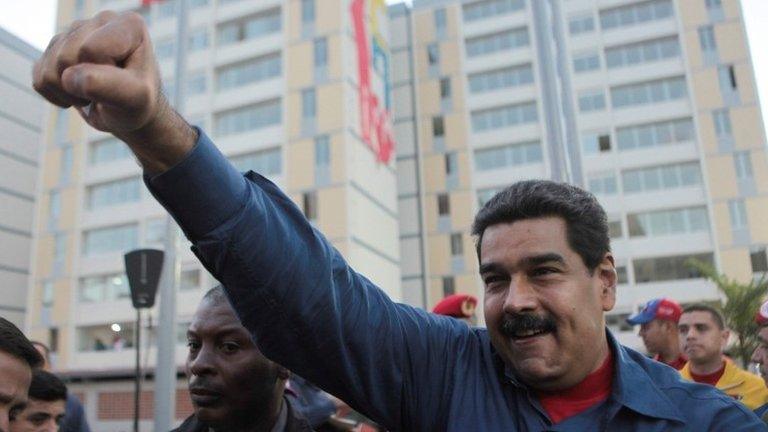
- Published12 August 2021
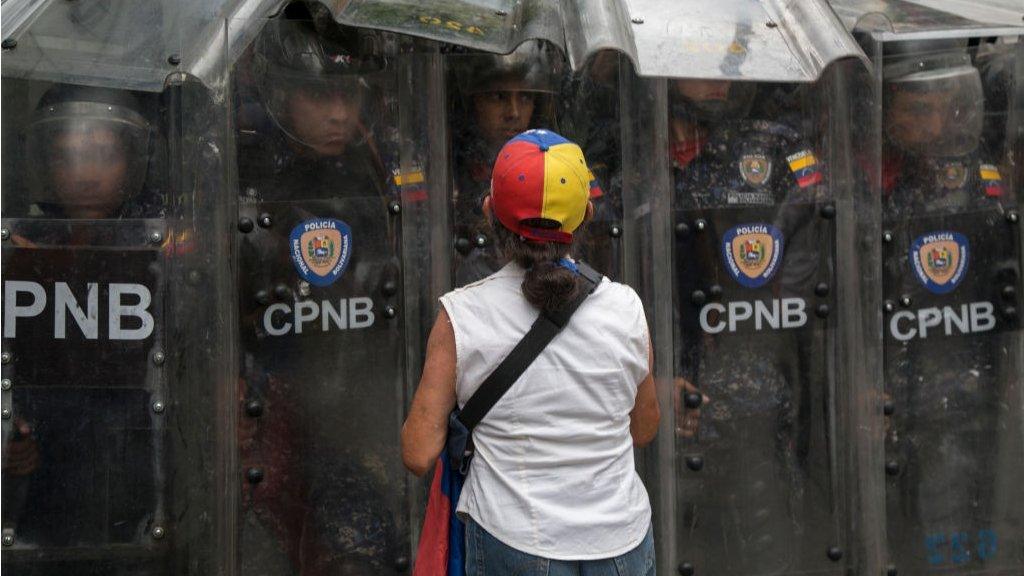
- Published9 September 2024
